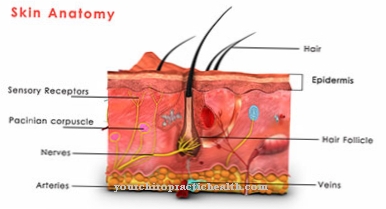Spotting, which are often related to an intermenstrual bleeding, can occur in addition to the normal menstrual bleeding, during pregnancy or during or after the menopause. The causes can be varied. Therefore, they should always be clarified by a doctor.
What is spotting?

© Double Brain - stock.adobe.com
A Spotting is an unplanned bleeding that can occur in addition to the menstrual period. It is usually brownish or dark in color and is therefore particularly noticeable. Spotting can also occur during pregnancy and during or after the menopause.
This is a slight bleeding, also called spotting, which can usually only last for a short time, but sometimes for several days. Most women are very unsure of the occurrence of spotting, as the reasons for the unexpected bleeding are usually not clear.
This is not the only reason why a medical clarification of the causes is advisable. Spotting can have many causes. Often times these are harmless and not a cause for concern. In some cases, however, serious illnesses are responsible for the occurrence of spotting.
causes
The causes of a Spotting can be diverse. Various diseases of the genital organs can cause spotting. These include fibroids, polyps or even inflammation of the uterus or ovaries. Growths outside the uterus (endometriosis) and benign growths on the cervix (portioectopy), as well as other benign or malignant tumors on the internal and external genital organs, can be the reason for spotting.
The unscheduled bleeding often also occurs due to hormonal disorders. This includes spotting that occurs while taking contraceptives such as the pill, but also at the beginning of pregnancy. If you have an ectopic pregnancy, you will also have light bleeding. Injuries to the blood vessels, for example after sexual contact or from wearing an IUD, can lead to spotting.
In addition, psychological stress, various metabolic diseases as well as liver and kidney diseases can cause spotting.
Symptoms, ailments & signs
In most cases, spotting occurs shortly before or after your period starts. Usually such spotting is accompanied by fairly clear and typical symptoms. Probably the clearest symptom of existing spotting can be seen with the naked eye. A slimy and mostly reddish liquid leaks from the vagina.
The amount can vary greatly from woman to woman. Since spotting often occurs shortly before your period starts, it can lead to significant abdominal pain. Occurring spotting often serves as a harbinger of the upcoming period. The period is also accompanied by typical symptoms and signs.
These include severe abdominal pain, headaches, hot flashes, and dizziness. Spotting doesn't always happen, but it can serve as a harbinger of your upcoming period. In most cases, spotting is associated with pain, but the pain is brief. Visually, spotting is different from your period because of its amount and color.
Commercially available and over-the-counter pain pills can provide a short-term improvement in the pain that occurs. However, the occurrence of spotting is not a clinical picture, so that it is not necessary to take appropriate medication.
Diagnosis & course
The diagnosis of a Spotting is always primarily a gynecologist's responsibility. In women of childbearing potential, the doctor will first rule out a pregnancy.A gynecological examination and ultrasound examinations can determine any diseases that may be present in the genital organs.
Possible hormonal causes can be diagnosed through blood tests. If there is an existing pregnancy, a definitive diagnosis will depend on the stage of pregnancy. Especially in early pregnancy, spotting is not unusual and is usually harmless. A possible ectopic pregnancy can be determined by an ultrasound examination.
If the doctor suspects psychological or other physical causes, further examinations by an internist or psychological counseling are necessary to find the trigger. As a rule, spotting lasts only for a short time and occurs for a maximum of two to three days. However, if the cause is not identified the first time it occurs, recurrent spotting may occur.
Complications
Spotting does not necessarily have to lead to complications. Most of the discharge is harmless and occurs as a result of temporary hormonal changes or minor injuries in the area of the uterine lining. Pre-bleeding is sometimes caused by thyroid disease and this may be related to infertility. If the spotting is caused by a lack of estrogen, it can lead to depressive moods, cardiac arrhythmias, osteoporosis and other health problems.
If there are organic causes - for example inflammation of the uterine lining or polyps - these can also lead to serious complications if left untreated. The spotting itself is usually a symptom of another cause and does not itself result in any further symptoms. However, if the intimate hygiene is inadequate, it can lead to inflammation, itching and redness.
The drug treatment carries the typical risks. Side effects and interactions are possible and occasionally there are allergic reactions and symptoms of intolerance. If the spotting is caused by cancer, chemotherapy or radiation therapy can cause health problems. Hormone treatment or scraping may also be associated with further complications.
When should you go to the doctor?
A doctor does not always have to be consulted with spotting. A visit to the doctor is usually only necessary if the spotting occurs frequently and, above all, for no particular reason. Only with an early diagnosis and treatment of this complaint can further complications and other complaints be prevented. Those affected also suffer from very severe pain in the stomach or abdomen and also from strong mood swings.
If these symptoms occur, a doctor should be consulted. A doctor should also be consulted in the event of severe headaches or dizziness if these symptoms are associated with spotting. If the spotting occurs very rarely and disappears on its own, a visit to a doctor is usually not necessary. The spotting can be examined and treated by a gynecologist. Usually this complaint does not reduce the life expectancy of the person affected.
Treatment & Therapy
Treating a Spotting always depends on the triggering cause. If there is a disease of the genital organs, this is treated accordingly. This can be done with the help of medication, but also through surgical interventions. Hormonal causes can be treated by taking appropriate hormone preparations.
If taking the pill or wearing an IUD is the cause of the spotting, it can be remedied by removing the IUD or by changing the birth control pill. Psychological causes usually require psychological therapy. If other physical illnesses are responsible for the spotting, these will be treated depending on the underlying disease.
An ectopic pregnancy must be surgically terminated. A healthy and fully mature fetus cannot grow in the fallopian tube. Further growth of the embryo can endanger the mother's life. Both at the beginning and at the end of a normal pregnancy, spotting is usually harmless symptoms that will go away on their own without further treatment. If you are pregnant, the doctor must decide on a case-by-case basis whether spotting needs treatment.
You can find your medication here
➔ Medicines for menstrual crampsprevention
One that started suddenly Spotting cannot be prevented as the causes can be extremely diverse. In order to avoid repeated spotting with an unexplained cause, it is advisable to have the cause clarified by a doctor the first time an unusual bleeding occurs. This can prevent spotting again.
Aftercare
Since persistent spotting, which is perceived as stressful, often results from an irregular hormone level, the therapy will usually consist of an examination of the same and hormone administration. Often this is the pill. Regardless of the occurrence of further spotting, women who take the pill should be examined by a gynecologist every six months.
The administration of other hormone preparations should also be checked by the attending physician, usually by establishing a new hormone level. It is important that affected women keep the follow-up appointments here. Hormones can have severe side effects, so close control of the dose can be of great importance.
Regular follow-up appointments should also be made after gynecological operations to ensure that the duration and severity of the spotting, which is not uncommon after operations, does not harm the patient's health. Many women often experience spotting while taking the pill.
Provided that it has been clarified gynecologically that the spotting has no other cause, not every further spotting needs to be discussed with a specialist immediately. Nevertheless, it is also important here that regular gynecological check-ups take place. The main aim here is to rule out that other causes of the spotting have developed unnoticed.
You can do that yourself
In the event of regular spotting, the women concerned should definitely have the cause clarified by a doctor. Cyclical spotting and those that can be traced back to pregnancy cannot always be treated causally. Those affected should then focus on preventing the consequences. For many women, spotting is so uncomfortable because it cannot be planned and the choice of clothing cannot be adjusted. Those affected have to come to terms with this and come to terms with this inconvenience as best as possible.
If you don't want to wear panty liners all the time, you should at least always have them on hand. These hygiene products are now available in different colors, which allows them to be used particularly discreetly. Black panty liners in particular are almost invisible in black underwear. For on the go, cases are offered that allow hygienic and inconspicuous stowage in the handbag. Individually packaged products are also particularly practical.
If you suffer from severe bleeding in between, you should not only carry tampons with you, but also spare underwear. In specialist shops and drugstores, individually packaged disposable briefs are available for this purpose, which also fit in almost every handbag. Moist cleaning wipes, which are also offered individually packaged, ensure that blood and vaginal secretions can be removed at any time.

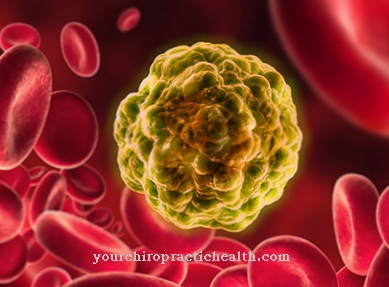
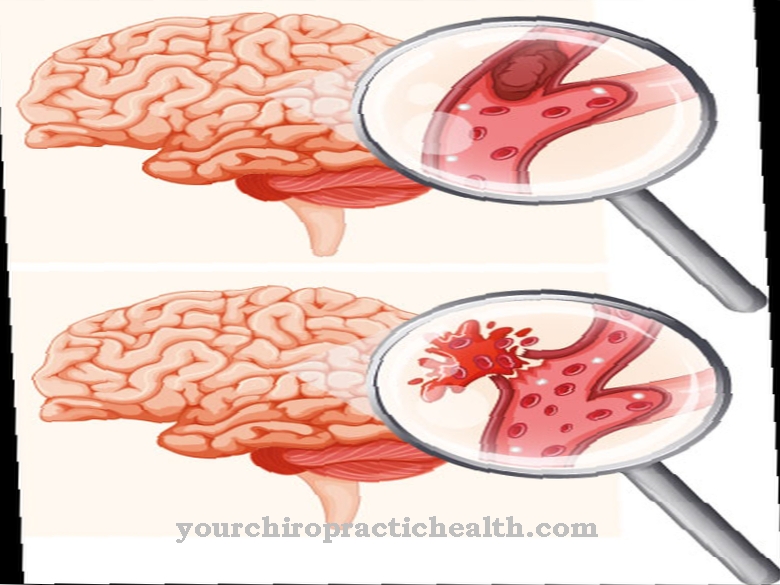
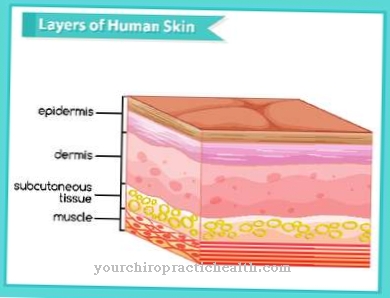
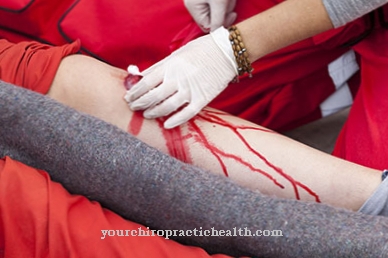
.jpg)
